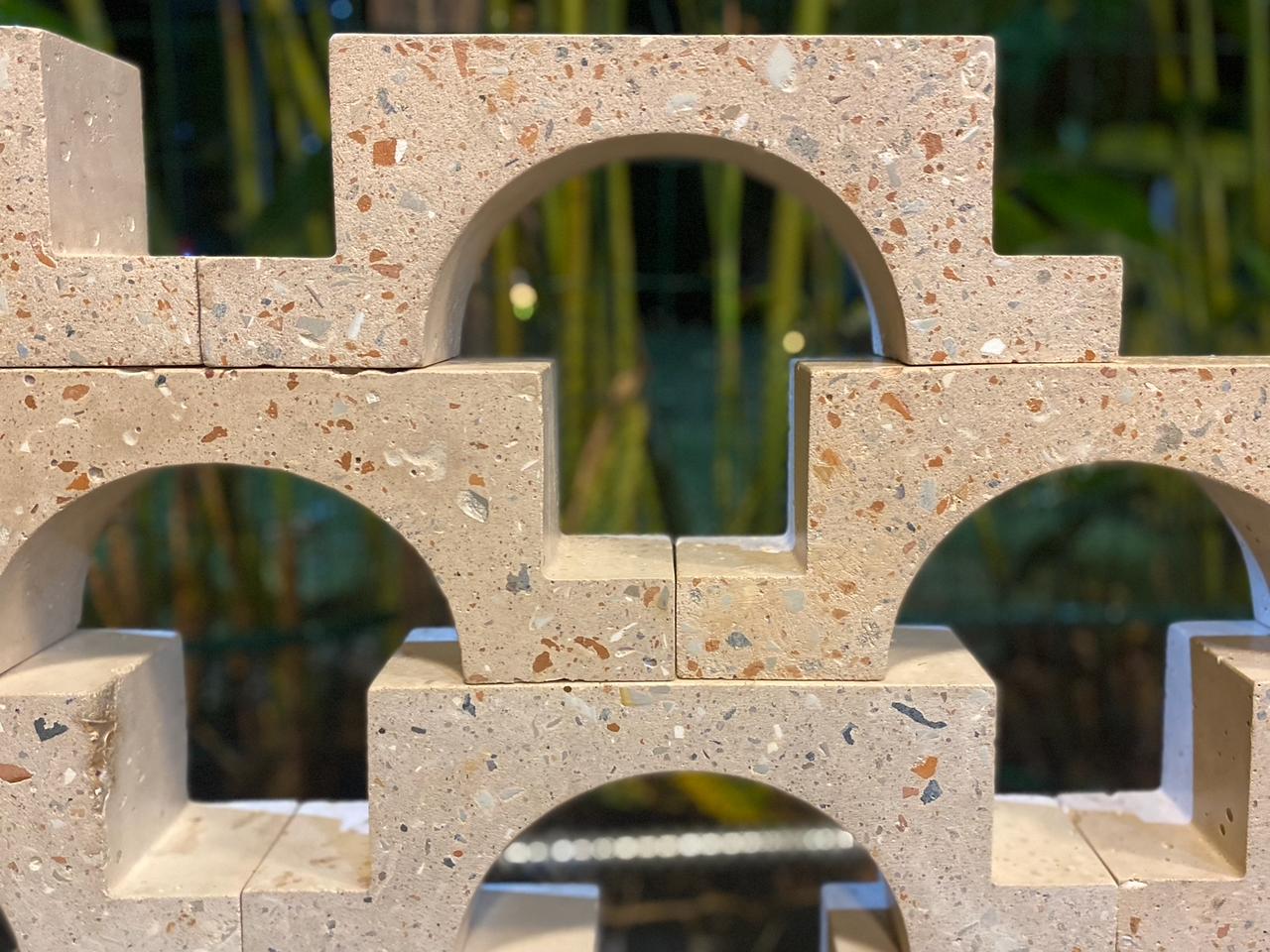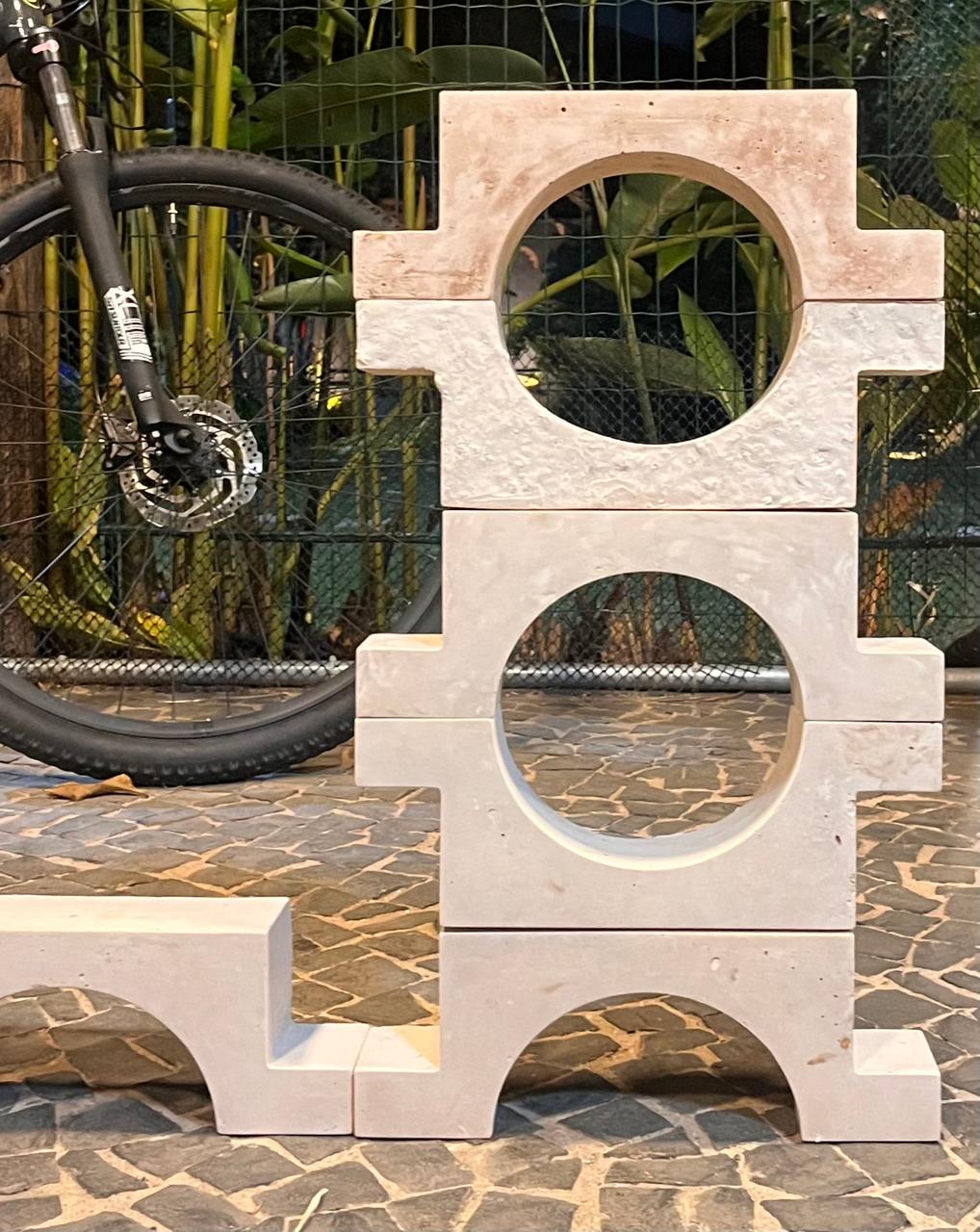Project implementation: Brazil
Project development: Brazil
Cobogó Alberobello is the result of ongoing, independent research by Raquel Finotti of Talpa Design, who investigates the potential for reusing waste from various sources. This specific project focuses on construction waste.
Each module of the project contains 62% of recycled aggregates, sourced from materials carefully separated, crushed, and prepared for incorporation into the mix, transforming what would otherwise be considered waste into valuable raw materials. This dedication ensures that each piece carries not only a practical function but also conveys the narrative of care and attention at every stage of the process.
The naturally reddish hue of cobogó is the result of tile and brick waste, creating an organic palette that eliminates the need for artificial colors and captures the essence of clay. By incorporating these crushed fragments into the design, a unique aesthetic is revealed, combining innovation, memory, and sustainability.
Beyond aesthetics, Cobogó Alberobello performs important architectural functions: it modulates light input, promotes ventilation, and adds texture to spaces, providing comfort and visual poetry. Its versatile geometry allows for multiple layouts, offering compositional freedom and ensuring that each assembly is unique, adapting to the needs and desires of each project.
The cobogó's design connects with Brazilian tradition while also evoking Mediterranean references, recalling historic cities and landscapes steeped in memory. The result is a piece that transcends practical function and transforms urban waste into architectural poetry, reaffirming the ability to find beauty, meaning, and sustainability in what was once mere waste.
Cobogó Alberobello epitomizes the search for more conscious architectural solutions, demonstrating that it is possible to combine creativity, environmental responsibility, and aesthetic sensitivity in each module produced.



